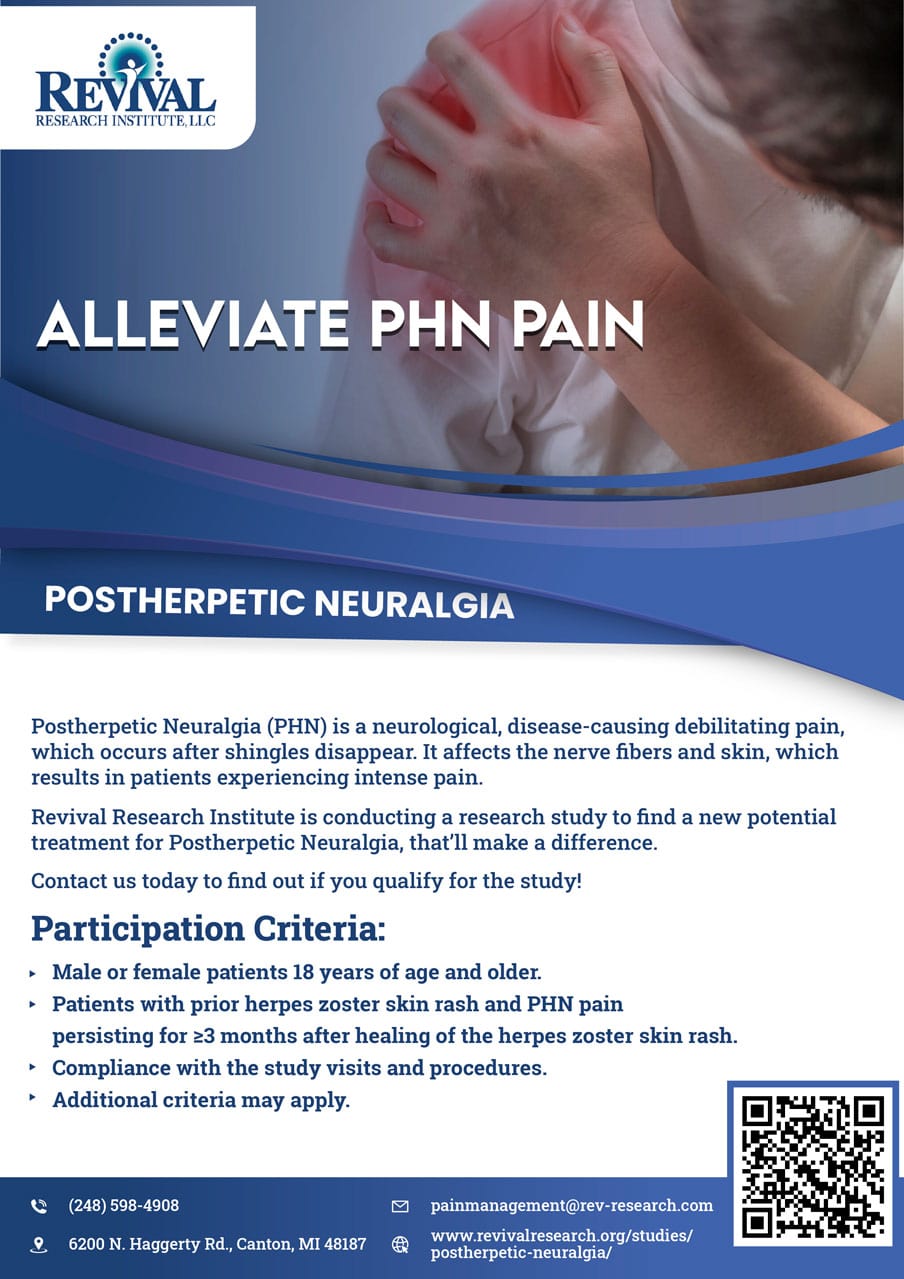A Clinical Research Study might just be able to help you with your PHN pain.
Did your Shingles go away but do you still have pain? You may be suffering from Postherpetic Neuralgia (PHN). It is a painful complication of Shingles that affects your nerve fibers and skin causing pain, numbness, and itching.
You may be eligible to volunteer if you:
- Are 18 years or older
- Have been diagnosed with Postherpetic Neuralgia (PHN)
- Do not have any neurological condition that mimics the symptoms of PHN.
If you’ve been diagnosed with PHN, you may be able to participate in a research study investigating a study drug that may help treat PHN pain.
*If you are eligible for the PHN clinical trial, someone from our research staff will give you a call to begin the screening process and see if you further qualify. You may be invited to the nearest site for medical evaluations by experienced doctors and nurses.
*All volunteers eligible for the research study will be compensated for their time and travel. No insurance is required to participate and it is free of cost.



